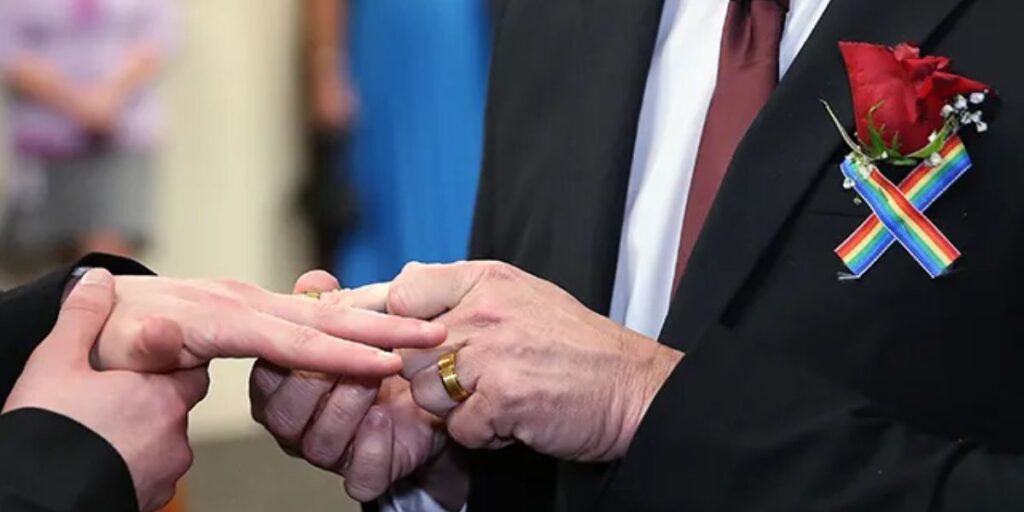Same-sex marriage has been a topic of significant legal and social debate in the United States. In Pennsylvania, the path to marriage equality was a long and complex one, involving legal battles and shifting public opinions. Today, same-sex marriage is legal in Pennsylvania, but this was not always the case. This article explores the history, legal framework, and current status of same-sex marriage in the state.
The Legal Battle for Same-Sex Marriage in Pennsylvania
Pennsylvania’s journey to legalizing same-sex marriage was marked by both resistance and progress. Before the landmark ruling in 2014, same-sex couples in the state faced significant barriers to marriage.
The Defense of Marriage Act (DOMA) and Early Restrictions
For many years, Pennsylvania law defined marriage as a union between one man and one woman. The state enacted its own version of the Defense of Marriage Act (DOMA) in 1996, which explicitly prohibited same-sex marriages and refused to recognize those performed in other states. This legislation mirrored federal laws that barred same-sex couples from accessing federal marriage benefits.
The 2013 Challenge: Whitewood v. Wolf
The turning point for same-sex marriage in Pennsylvania came in 2013 when a group of same-sex couples, along with their children, filed a lawsuit challenging the state’s ban on same-sex marriage. The case, Whitewood v. Wolf, argued that Pennsylvania’s law was unconstitutional and violated the equal protection and due process clauses of the U.S. Constitution.
The 2014 Ruling: Legalization of Same-Sex Marriage
On May 20, 2014, Judge John E. Jones III of the U.S. District Court for the Middle District of Pennsylvania ruled in favor of the plaintiffs in Whitewood v. Wolf, striking down the state’s ban on same-sex marriage. Judge Jones declared that the law was unconstitutional and that same-sex couples had the fundamental right to marry.
Pennsylvania Governor Tom Corbett, a Republican, initially defended the ban. However, following the court’s decision, he chose not to appeal, making Pennsylvania the 19th state to legalize same-sex marriage.
The Impact of Obergefell v. Hodges (2015)
Although Pennsylvania legalized same-sex marriage in 2014, the nationwide recognition of marriage equality was still uncertain. That changed with the U.S. Supreme Court’s decision in Obergefell v. Hodges on June 26, 2015. This ruling struck down all remaining bans on same-sex marriage across the country, ensuring that marriage equality was the law of the land.
The Obergefell decision meant that same-sex marriages performed in Pennsylvania would be recognized nationwide, granting couples full legal rights and benefits at both the state and federal levels.
Current Legal Status of Same-Sex Marriage in Pennsylvania
Today, same-sex marriage is fully legal in Pennsylvania. Same-sex couples have the same legal rights and responsibilities as opposite-sex couples, including:
- The ability to obtain a marriage license.
- Equal tax benefits at both state and federal levels.
- Parental rights, including adoption and child custody.
- Spousal rights in healthcare and inheritance matters.
- Social Security and pension benefits.
Since the legalization, thousands of same-sex couples in Pennsylvania have exercised their right to marry, solidifying the state’s role in the broader movement for LGBTQ+ rights.
Public Opinion and Social Progress
Over the years, public support for same-sex marriage in Pennsylvania has grown. While initial resistance was strong, attitudes have shifted significantly. Polls indicate that a majority of Pennsylvanians now support marriage equality, reflecting broader national trends.
Additionally, major cities like Philadelphia and Pittsburgh have implemented policies to support LGBTQ+ rights, including anti-discrimination ordinances and equal access to public services.
Challenges and Ongoing Issues
While same-sex marriage is legally recognized, challenges remain for LGBTQ+ individuals in Pennsylvania. Some of these include:
- Religious Exemptions: Certain religious institutions and businesses argue for the right to refuse services to same-sex couples based on religious beliefs.
- Employment and Housing Discrimination: Although same-sex marriage is legal, LGBTQ+ individuals in Pennsylvania still face discrimination in employment and housing. The state lacks comprehensive anti-discrimination laws protecting sexual orientation and gender identity.
- Parental Rights and Adoption: While same-sex couples can adopt, legal barriers sometimes arise, particularly in cases involving surrogacy or second-parent adoption.
Conclusion
Same-sex marriage is legal in Pennsylvania, thanks to the Whitewood v. Wolf decision in 2014 and the subsequent Obergefell v. Hodges ruling in 2015. While significant progress has been made, challenges remain for LGBTQ+ rights in the state. Continuing to advocate for equality, anti-discrimination protections, and social acceptance is crucial to ensuring that marriage equality remains a reality for all Pennsylvanians.





More Stories
Is Same-sex Marriage Legal in Pennsylvania? A Look at Laws, History, and Challenges
Is Same-sex Marriage Legal in Pennsylvania? A Look at Laws, History, and Challenges
Is Same-sex Marriage Legal in Pennsylvania? A Look at Laws, History, and Challenges